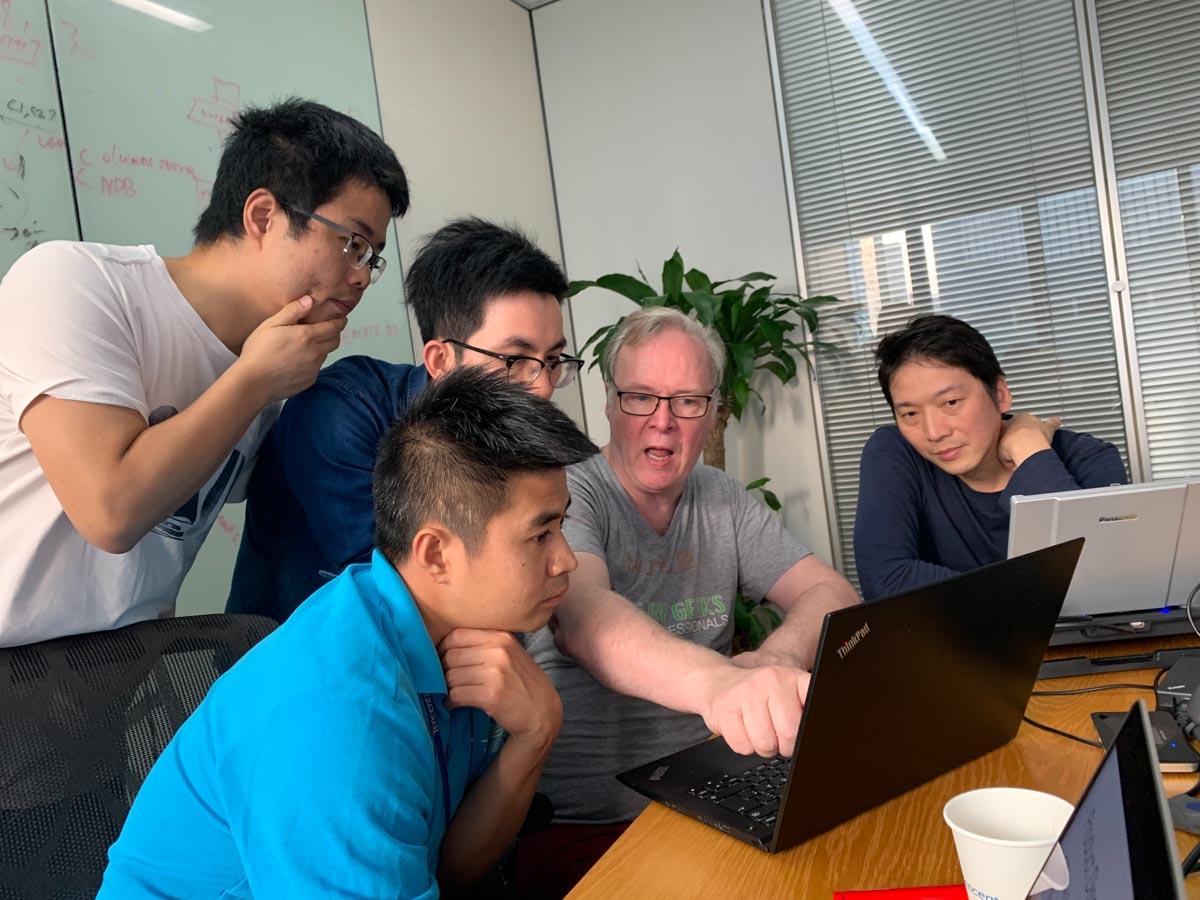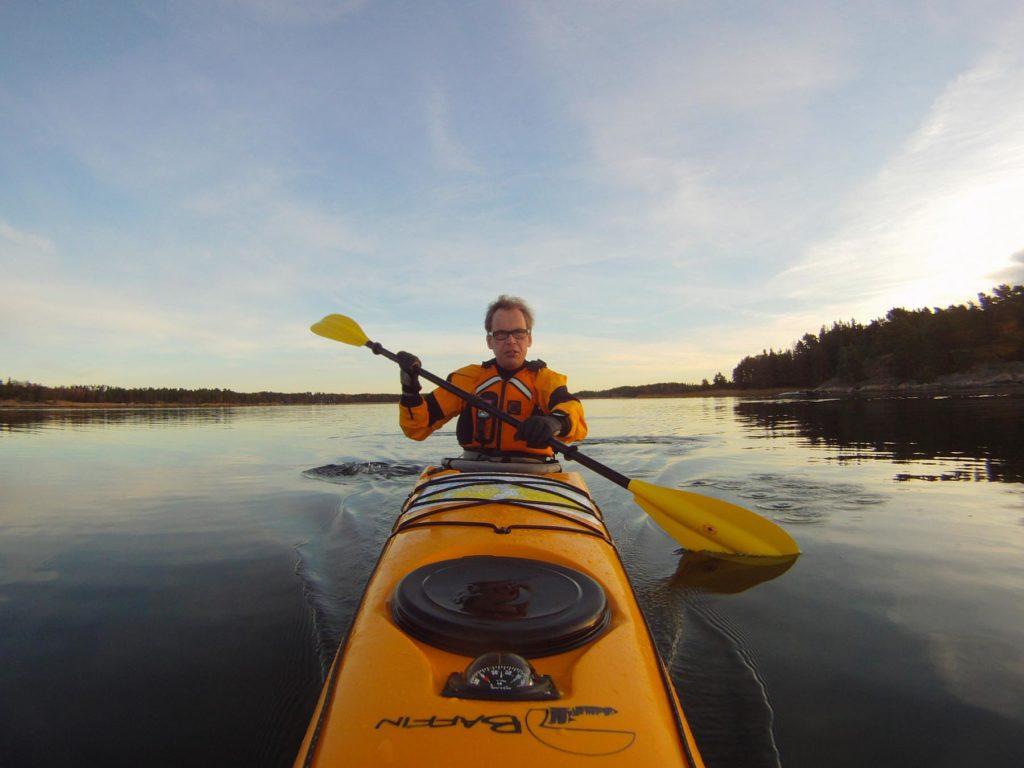Life after this

On Monday, I sent out an email to the staff of MariaDB Foundation. In the hope that my thinking is also applicable for someone else, here’s a slightly edited excerpt:
My email to our staff
For an unknown amount of time, we will live under exceptional circumstances. Yet, there will be life both during and after the Corona pandemic. With this email, I want to share my view on how Corona affects our organisation, on how we sustain life during Corona and on how we best prepare for life after Corona.
When facing adverse times, I fall back on thoughts and values I have read and contemplated. Two Finnish presidents, one German chancellor, and one ancient Greek philosopher guide my thinking for our Corona actions.
First in line, J. K. Paasikivi, the President of Finland from the end of World War II until 1956. He stated that the foundation of all wisdom is to recognise facts. Facts not being available, we will have to make do with reasonable assumptions: The best scientists estimate 60-70% of us will catch Corona within the next two years. Even if 80% have only mild symptoms and most of the rest survive, I think Paasikivi would classify this as very bad news. The future is always uncertain, but I don’t think it has ever been this uncertain during my lifetime.
Second in line, Angela Merkel, the current German chancellor. Her actions are based on “thinking from the end”. She deducts the next step from reasoning backwards from the end state. With Corona, the end state after the pandemic is that life will go on and the mission our organisation is fulfilling will remain purposeful, even if we may need to tackle different challenges.
Third in line, Sauli Niinistö, the current President of Finland. To complement the concept of Social Distancing that causes most of the current constraints we live under, he has devised the concept of Emotional Closeness. What a great concept! Through globalisation, there is often a long physical distance to those emotionally close to us.
Fourth and last, Zeno of Citium, the ancient Greek philosopher that founded stoicism. I think stoicism as such is the best philosophy to apply when dealing with Corona. “Fix what you can influence, live with what you cannot” is one basic stoic tenet, but not the only one helpful in Corona times. Reading up on how Stoics face adverse times might be more demanding than watching cat videos on YouTube, but can also be more helpful.
Then, my email goes on to deal with the concrete measures we are taking, to ensure our financial survival, as well as our emotional survival (something we address virtually with tools like WhatsApp, Zulip, Zoom, and Slack), and how we adapt our goals to the Corona hiatus.
Preparing for life after this
My thought: For everyone, it’s wise to prepare for life after this. Sooner or later, we will start rebuilding a society, which after Corona won’t quite be like the one we know today. But it will be worth living in.
Until then, we should minimise suffering. Both physically and emotionally. First apply your own oxygen mask, then help others. This is relevant in all our roles, professionally and privately.
In a year, resources need to be in as good shape as possible. This applies above all to the workforce, which is to rebuild society. Until then, gross national products will inevitably shrink by tens of percentage points. But one beautiful day, we will again need hotels and airlines, restaurants and conference venues, swimming halls and sports arenas. Then, infrastructure and personnel must remain, somehow having hibernated until then.
I am asking myself what a simple blogger like myself can do to contribute, as a blogger. Not much. People like me, often having opinions outside my area of expertise, had better shut up, and listen to the experts.
My appeal: Hands off “reality horror”
But there is one thing I dare express my opinion on, and that is media habits. Those who today see a need to share pictures of shelves empty of toilet paper, pizza or pasta, what will they share in a month? “Here you see the ambulance that picked up our third neighbour. Isn’t it horrible?”. In two months, pictures from the intensive care unit.
Spoiler alert: Lots of horrible things will happen, the world over. Internet, especially Facebook, can spread “reality horror” of various degrees of severity. I am not even talking about fake news, but content-wise correct news. They will have high sensation value, but their effect on morale is devastating. For many months ahead, there will always be some place suffering really badly. If not right in your city or country, then somewhere else physically close, or emotionally close enough for you to care.
My appeal: Hands off reality horror. Don’t watch it. And, above all, don’t spread it.
Share good news and dreams
Instead, share some good news, even if it may seem insignificant. And why not future dreams, about life after this. Hashtag #aftercorona – and perhaps include a picture. I will travel to Finland and go kayaking in the Archipelago Sea!

Excellent. Greetings from Portland, Oregon, where I got to know Monty and many of you well over many years of the Open Source conference at the Oregon Convention Center. Tonight, someone is sleeping safely on exactly the spot where the MariaDB booth hands out t-shirts. https://www.oregonlive.com/coronavirus/2020/03/oregon-convention-center-to-become-temporary-coronavirus-related-homeless-shelter.html
We can all be proud of the quiet but essential role that open source has played in providing the communications and data resources needed to address this world changing challenge to human health. And it is just exactly toolsets like MariaDB that quietly provide such resources to all that will enable the entire world society to progress. It seems likely OSCON will not be held here this year, but we *will* see you in the future.
Thank you. Greetings from Brisbane, Australia.
I have no real connection with MariaDB … other than as an end-user – at least not until now. While visiting your website, looking for answers to something quite unimportant, I happened upon your blog. It stopped me in my tracks. The insights and suggestions you share in your blog will, I hope, help others to weather this storm. I know you have made me look at a number of things differently. Thanks for sharing with the wider world.
Thank you for your warm words, Geoff and Fred!
Completely agree. Looking for something technical, found my spirits lifted. Thank you.
Hi Kaj,
Thank you for this blog and thanks to all what MariaDB is doing for the community.
Like many others, we read tens of public CEO statements about Corona these days. Most of them are just marketing. They repeat each others in a cold but well mannered speech: the “corona speech”.
Thank you for your sincerity and honesty.
Stay safe!
Sage words for trying times.
At last wise words from someone I admired for the last 20 years. I have taken your words to the core.
Hi Kaj,
Honest words. It will show in your creation as well. Never a MariaDB user. But will start find out.
Simon
Hej Kaj Arnö,
I did not know your name or organization a few hours ago.. and then I read your clever message. And one of hope too. I share your analysis on the points you raise (although not a specialist of Zeno).
Hope you enjoyed your kayaking in your beauty- and peace-ful country. Here in France, we’re still almost stuck at home… and I still remember the president’s words about being at war. Yours feels closer to me with the concept of Emotional Closeness.
Anyway, I’m going back to work. I have some database to create, and I hope MariaDB will help me, as well as I’ll think over about your words
Kaj,
Greetings from Kolkata, India.
I didn’t know much about MariaDB; other than it being an FOSS alternative to MySQL. I came upon this website while trying to download the software for Windows, and was simply spellbound by the honest and thoughtful insights of this blog on your home page. All of us, all of humanity, are in this fight together, and all of us know of either someone who is working tirelessly at the hospitals to provide relief to their patients, or someone who has faced the disease. I want to thank you for the hard work you have done through the years, allowing someone on the far side of the globe to use your awesome tools to build stuff, which I hope will be of benefit to someone else.
Please stay safe, please keep people around you safe. Hope to meet you one day when all of this gets over.
Pratik